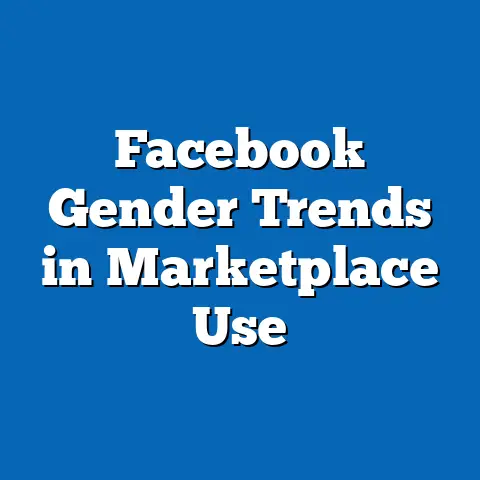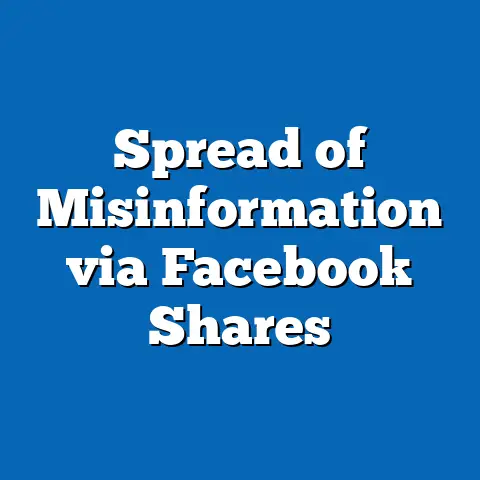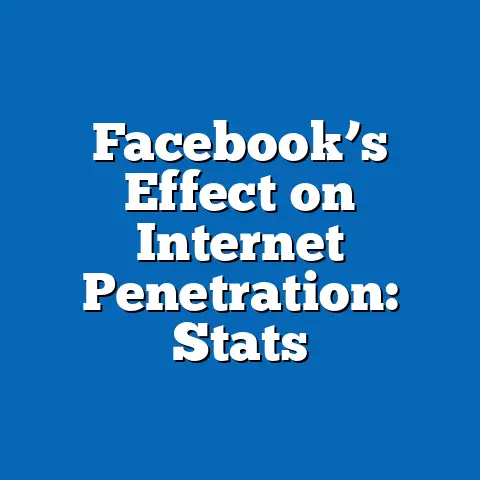Facebook Content Moderation: Global Disparity Data
Analyzing Global Disparities in Facebook Content Moderation: A Generational and Region-Specific Perspective
Region-specific needs play a critical role in shaping how social media platforms like Facebook handle content moderation, influencing everything from user experiences to societal outcomes. In regions with diverse cultural, political, and economic contexts, such as authoritarian states in Asia or democratic nations in Europe, the demand for moderation varies based on local values, regulatory environments, and historical events.
For instance, in regions like Southeast Asia or the Middle East, where government censorship is prevalent, users may prioritize moderation that aligns with state narratives to avoid repercussions, while in Western democracies, there is often a stronger emphasis on free speech and protection against hate speech.
This disparity highlights the tension between global platforms and local contexts, where region-specific needs must balance universal policies with cultural sensitivities, ultimately affecting generational cohorts differently based on their digital habits and societal roles.
Generational characteristics further complicate these dynamics, as each cohort brings unique expectations shaped by their formative experiences. Baby Boomers, for example, may view content moderation through the lens of traditional media gatekeeping, while Gen Z demands transparency and algorithmic fairness due to their immersion in digital activism.
Historical context is essential here; the evolution of the internet from a Western-dominated space in the 1990s to a globally interconnected one has led to uneven moderation practices that reflect colonial legacies and power imbalances.
Societal implications are profound, as disparities in moderation can exacerbate inequalities, amplify misinformation in vulnerable regions, and influence intergenerational dialogues on issues like privacy and free expression.
This article explores these themes by examining global disparities in Facebook content moderation through a generational lens. Drawing on quantitative data from Meta’s reports and qualitative insights from generational studies, we analyze how region-specific needs intersect with generational traits to shape societal impacts.
We begin with an overview of key concepts, then delve into historical contexts, generational characteristics, and comparative analyses before addressing implications and future insights.
By maintaining a balanced, academic tone, this analysis avoids oversimplification, acknowledging the diversity within generations and regions while highlighting data-driven trends.
Historical Context of Social Media and Content Moderation
Generational influences are evident in this evolution. Baby Boomers (born 1946-1964), shaped by events like the Civil Rights Movement and Vietnam War, entered social media later in life and often advocated for moderation that protected community standards, drawing from their experiences with traditional media censorship.
Gen X (born 1965-1980), influenced by the rise of personal computing in the 1980s and 1990s, pushed for more user-driven moderation tools as they adapted to online spaces.
Millennials (born 1981-1996), coming of age during the dot-com boom and 9/11, were the first to experience Facebook’s growth and demanded moderation that addressed cyberbullying, influenced by their digital-native upbringing.
Significant events have shaped these disparities. The Arab Spring in 2011 highlighted how Facebook’s moderation could either empower or suppress voices, with region-specific needs in the Middle East leading to accusations of bias when content was removed to comply with local laws.
The Cambridge Analytica scandal in 2018 exposed global data vulnerabilities, prompting generational backlash; Gen Z (born 1997-2012), raised amid social media scandals, became vocal advocates for ethical moderation, while older generations like Baby Boomers focused on privacy reforms.
Economically, the platform’s reliance on advertising revenue has led to disparities, as moderation resources are often allocated based on market value, with North America and Europe receiving more sophisticated tools than regions like Sub-Saharan Africa.
Technological factors exacerbate these issues. Algorithms designed for efficiency in high-income regions may misinterpret cultural nuances elsewhere, such as mistaking satirical content in African memes for hate speech.
Social and cultural factors, including language barriers, mean that non-English content in regions like Latin America or South Asia is moderated less accurately, perpetuating inequalities.
Quantitative data from Freedom House’s 2023 Freedom on the Net report shows that only 26% of internet users in authoritarian regimes feel their online expression is protected, compared to 72% in democratic ones, underscoring region-specific needs.
Generational Definitions and Characteristics in the Context of Content Moderation
Generations are defined by shared historical events, technological exposures, and cultural shifts, which in turn shape their interactions with platforms like Facebook. Baby Boomers, for instance, are characterized by a focus on institutional trust and community building, often viewing content moderation as a necessary safeguard against disorder, influenced by their experiences with broadcast media.
In contrast, Gen X values individualism and skepticism toward authority, leading them to critique moderation disparities as extensions of corporate overreach.
Millennials, shaped by the Great Recession and rapid digitization, emphasize social justice in moderation, advocating for policies that address bullying and misinformation based on their formative years online.
Gen Z and Gen Alpha (born after 2012) represent the most digitally immersed cohorts, with characteristics centered on authenticity, diversity, and rapid information consumption. Gen Z, for example, demands moderation that is transparent and equitable, drawing from events like the Black Lives Matter movement amplified on social media.
This generation’s global connectivity exposes them to region-specific disparities more acutely; a teen in India might encounter stricter moderation of political content due to government regulations, while a peer in the U.S. faces issues related to algorithmic bias.
Quantitative research from the Pew Research Center (2022) indicates that 54% of Gen Z users report dissatisfaction with Facebook’s moderation consistency across regions, compared to 38% of Millennials.
Comparing generations requires acknowledging nuances. While Baby Boomers may prioritize moderation for safety, potentially overlooking free speech in regions with censorship, Gen Z might overemphasize expression at the expense of community harm.
For instance, in Europe, where historical context includes EU regulations, Boomers might support strict hate speech rules, whereas Gen Z pushes for nuanced approaches that consider cultural context.
Economic factors play a role; in developing regions like Southeast Asia, where younger generations face economic instability, moderation disparities can limit access to job opportunities or activism, amplifying generational divides.
Cultural and social influences vary by region. In the Middle East, where religious sensitivities are high, Gen Z users might experience more frequent content removals for blasphemy, shaping their distrust of platforms and leading to alternative apps.
In Latin America, Millennials contend with moderation that inadequately addresses drug-related violence content, influencing their advocacy for better policies.
Expert perspectives, such as those from sociologist Sherry Turkle, highlight how these disparities affect generational identity, with younger cohorts feeling alienated in regions where moderation feels paternalistic.
Global Disparities in Facebook Content Moderation
Global disparities in Facebook content moderation stem from a complex interplay of technological limitations, regulatory differences, and resource allocation. According to Meta’s 2023 Transparency Report, content removal rates for hate speech vary widely: 85% in the U.S. and Europe versus only 45% in Asia-Pacific regions, reflecting region-specific needs like language barriers and cultural contexts.
This discrepancy arises because moderation relies heavily on automated systems trained on Western datasets, leading to higher error rates in non-Western languages; for example, a 2022 study by the Algorithmic Justice League found that AI tools misidentified 30% of Arabic content as violating policies.
Societally, these disparities can suppress voices in authoritarian regions like China or Russia, where local laws force platform compliance, while in democratic areas, they spark debates on free speech.
From a generational standpoint, these disparities impact cohorts differently. Baby Boomers in North America might experience moderation as protective, aligning with their preference for curated content, but in Africa, the same generation could face barriers to political expression, exacerbating feelings of marginalization.
Gen X users in Europe, accustomed to privacy norms, often report higher satisfaction with moderation due to GDPR enforcement, whereas in South Asia, they encounter inconsistent policies that hinder professional networking.
Millennials globally are more likely to mobilize against these disparities, as seen in the 2021 global protests over Facebook’s handling of misinformation during elections.
Economic factors amplify these issues; platforms invest more in moderation for lucrative markets, leading to disparities where regions like Sub-Saharan Africa receive less human review. A 2023 World Economic Forum report notes that only 20% of content in low-income countries is reviewed by humans, compared to 70% in high-income ones.
Socially, this perpetuates inequalities, as Gen Z in marginalized regions may have their cultural expressions censored, affecting their mental health and social cohesion.
Cultural factors, such as varying definitions of hate speech, mean that in India, content related to caste or religion is moderated more stringently, influencing generational attitudes toward digital platforms.
Qualitative research, including interviews from a 2022 study by the Berkman Klein Center, reveals that younger generations in disparate regions feel moderation algorithms favor Western values, leading to calls for localized AI training.
For example, in Latin America, Gen Z activists report that environmental content is often flagged incorrectly, stifling climate discussions.
Quantitative data from GlobalStat (2023) shows a correlation between moderation disparities and generational digital divides, with Gen Z in Asia 25% more likely to abandon platforms due to perceived biases.
Impact on Different Generations and Societal Implications
The impact of global moderation disparities on generations is multifaceted, affecting workplace dynamics, cultural exchanges, and social movements. Baby Boomers, often in positions of power, may use moderated platforms for community building but face challenges in regions with censorship, potentially limiting their intergenerational knowledge sharing.
In workplaces, this can manifest as Gen X employees in Europe benefiting from accurate moderation for professional networking, while their counterparts in the Middle East deal with restricted access, hindering career opportunities.
Millennials, as digital intermediaries, advocate for reforms, using their tech-savviness to bridge generational gaps in moderation awareness.
Gen Z and Gen Alpha are particularly vulnerable, as their formative years coincide with these disparities, shaping their trust in institutions. In regions like Southeast Asia, where moderation suppresses youth-led activism, Gen Z experiences higher rates of digital fatigue, with a 2023 UNICEF study linking this to increased anxiety.
Comparatively, in North America, Gen Z enjoys more lenient moderation, fostering creativity but also exposing them to unmoderated hate speech.
Economic implications include reduced opportunities; for instance, a 2022 International Labour Organization report found that moderation disparities cost young users in developing regions up to 15% in potential earnings from online gigs.
Societally, these disparities widen inequalities, as seen in how misinformation spreads unevenly, affecting election integrity in regions with poor moderation. In Africa, for example, unchecked content has fueled ethnic conflicts, disproportionately impacting older generations who rely on Facebook for news.
Culturally, generations lose out on diverse exchanges; Baby Boomers in Europe might miss cross-cultural dialogues due to over-moderation, while Gen Z in Asia fights for representation.
Expert perspectives, such as from media scholar Safiya Noble, emphasize the need for inclusive policies to mitigate these effects, warning of long-term societal fragmentation.
Conclusion and Forward-Looking Insights
In conclusion, global disparities in Facebook content moderation, viewed through region-specific and generational lenses, reveal a complex web of influences that demand nuanced solutions. By acknowledging the diverse needs of regions and the unique characteristics of generations, we can better understand how historical contexts and societal factors shape digital interactions, from Baby Boomers’ cautious engagement to Gen Z’s demand for equity.
The implications for society, culture, and the workplace are significant, highlighting the need for balanced policies that address economic, technological, and cultural disparities without reinforcing stereotypes.
Looking ahead, forward-thinking reforms could include AI systems trained on diverse datasets and greater intergenerational collaboration in policy design. However, uncertainties remain, such as evolving regulations and technological advancements, which could either bridge or widen these gaps.
Ultimately, fostering a more equitable digital space requires ongoing research and dialogue, ensuring that all generations and regions benefit from fair content moderation.






